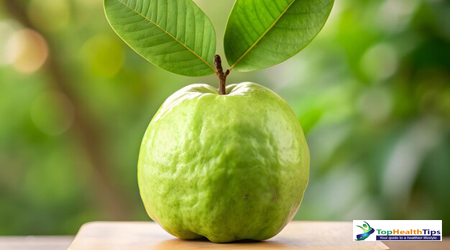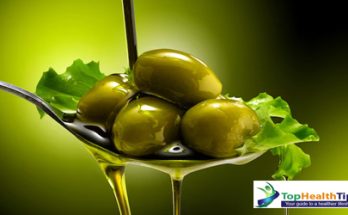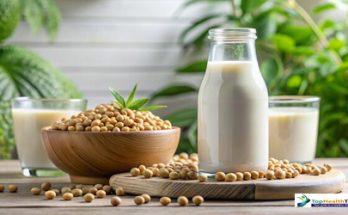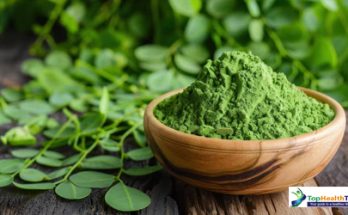Guava is a tropical fruit that often goes unnoticed compared to its popular counterparts like apples and oranges. However, guava is packed with impressive health benefits, making it a powerful addition to any diet. With its rich nutritional profile and numerous wellness advantages, guava has earned the title of a “superfruit.” In this article, we will explore the key health benefits of guava, its nutritional value, and why you should include it in your daily meals.
What Makes Guava a Superfruit?
Guava (Psidium guajava) is a tropical fruit native to Central America, but it is now grown in various parts of the world. This pear-shaped fruit comes in different varieties, with pink or white flesh and a sweet, aromatic flavor. Its health benefits are attributed to its impressive combination of essential nutrients such as vitamins, minerals, fiber, and antioxidants.
Nutritional Powerhouse
Guava is low in calories and high in nutrients. A single guava contains:
- Calories: 37-40 kcal (per 100g)
- Vitamin C: 228 mg (more than 2x the recommended daily intake)
- Fiber: 5.4 g
- Vitamin A: 624 IU
- Folate: 49 mcg
- Potassium: 417 mg
- Magnesium: 22 mg
- Antioxidants: Rich in lycopene and other polyphenols
These nutrients combine to provide a range of health benefits, which we’ll explore below.
1. Rich Source of Vitamin C for Immune Health
Guava is one of the richest sources of vitamin C, containing even more than oranges. Vitamin C is crucial for a healthy immune system, helping your body fight off infections and illness.
- Boosts immunity: Regular intake can improve immune function and protect against colds and flu.
- Wound healing: Vitamin C promotes skin repair and faster healing of wounds.
2. Improves Digestive Health
The high fiber content in guava aids digestion by promoting healthy bowel movements and preventing constipation. It also has other digestive benefits:
- Prevents constipation: Guava’s soluble fiber content helps in softening the stool and easing its passage.
- Supports gut health: Guava acts as a prebiotic, feeding the good bacteria in your intestines and enhancing gut microbiota.
3. Regulates Blood Sugar Levels
Guava is known for its ability to stabilize blood sugar, making it a great fruit for people with diabetes or those looking to prevent diabetes.
- Lowers blood sugar: The fiber content helps slow the absorption of sugar into the bloodstream.
- Improves insulin sensitivity: Studies have shown that guava leaf extract may improve insulin sensitivity, further benefiting those with Type 2 diabetes.
4. Promotes Heart Health
Consuming guava regularly may reduce the risk of heart disease due to its high content of fiber, potassium, and antioxidants.
- Lowers blood pressure: Potassium helps relax blood vessels, reducing hypertension.
- Reduces bad cholesterol (LDL): Guava’s fiber binds to cholesterol and aids in its elimination from the body, leading to better heart health.
- Rich in antioxidants: The antioxidants in guava, such as lycopene and polyphenols, help fight oxidative stress, which is a key factor in heart disease.
5. Supports Weight Loss
Guava can be a weight loss-friendly fruit due to its low-calorie content and high fiber, which promotes satiety and prevents overeating.
- Fewer calories: Guava is nutrient-dense, offering vital nutrients without many calories.
- Promotes fullness: The fiber keeps you full for longer, reducing the likelihood of unhealthy snacking.
6. Improves Skin Health
Guava’s rich vitamin C content, along with antioxidants like lycopene, can do wonders for your skin. It helps fight signs of aging and improves overall skin appearance.
- Anti-aging properties: The antioxidants help protect the skin from damage caused by free radicals.
- Promotes collagen production: Vitamin C is essential for the production of collagen, a protein that keeps skin firm and youthful.
7. Enhances Eye Health
The vitamin A content in guava contributes to eye health by preventing vision-related disorders and maintaining overall eye function.
- Prevents macular degeneration: Regular intake of vitamin A-rich foods like guava helps lower the risk of macular degeneration.
- Improves night vision: Vitamin A improves the eye’s ability to adjust to darkness and low-light environments.
8. May Reduce Cancer Risk
Several studies have suggested that guava’s high levels of antioxidants, particularly lycopene, may help reduce the risk of certain types of cancer.
- Fights cancerous cells: Lycopene has been shown to inhibit the growth of cancer cells, especially in prostate cancer.
- Protects DNA from damage: The antioxidants protect cells from oxidative stress and prevent mutations that could lead to cancer.
How to Add Guava to Your Diet
There are many ways to enjoy guava, whether as a snack or as an ingredient in various recipes. Here are some easy and delicious ways to add guava to your diet:
- Eat it raw: Simply wash and slice a guava, and enjoy it fresh.
- Smoothies: Blend guava with other fruits for a nutrient-packed smoothie.
- Salads: Add chopped guava to fruit or vegetable salads for a sweet and tangy flavor.
- Juices: Fresh guava juice is refreshing and rich in vitamin C.
- Guava chutney: A savory way to enjoy guava, especially in Indian cuisine.

Interactive Tips for Guava Usage
- Guava Smoothie Recipe Generator: Enter your favorite fruits and veggies, and get personalized guava smoothie recipes.
- Guava Nutrition Calculator: Check how guava fits into your daily nutrient intake goals.
Choosing and Storing Guava
When buying guava, look for fruits that are firm but give slightly under gentle pressure. They should have a sweet fragrance when ripe. Store guava at room temperature if you want them to ripen, or place them in the refrigerator to slow down the ripening process.
Conclusion:
Guava is more than just a delicious tropical fruit—it’s a nutrient-dense powerhouse that offers incredible health benefits. From boosting immunity to improving digestion, heart health, and even skin appearance, guava can be a key component of a healthy, balanced diet. With its rich content of essential vitamins, minerals, and antioxidants, there’s no reason not to make guava a regular part of your meals. Whether you enjoy it raw, in smoothies, or as a salad ingredient, adding guava to your diet can elevate your overall well-being.
Related post for Nutrition & Food >>>
References:
- Gutiérrez, R. M. P., Mitchell, S., & Solis, R. V. (2008). Psidium guajava: A review of its traditional uses, phytochemistry, and pharmacology. Journal of Ethnopharmacology, 117(1), 1-27.
- Deguchi, Y., & Miyazaki, K. (2010). Anti-hyperglycemic and anti-hyperlipidemic effects of guava leaf extract. Nutrition & Metabolism, 7(9), 1-7.
- Singh, S., & Pal, R. (2019). Lycopene’s role in chronic diseases and cancer prevention: A review. Critical Reviews in Food Science and Nutrition, 59(4), 577-590.
- Tarao, M., & Kato, T. (2010). Antioxidant properties of guava. Food Chemistry, 123(4), 1121-1132.
- Goyal, B. R., Goyal, R. K., & Mehta, A. A. (2010). Phytopharmacology of guava (Psidium guajava L.). Pharmacognosy Reviews, 4(7), 42-48.




